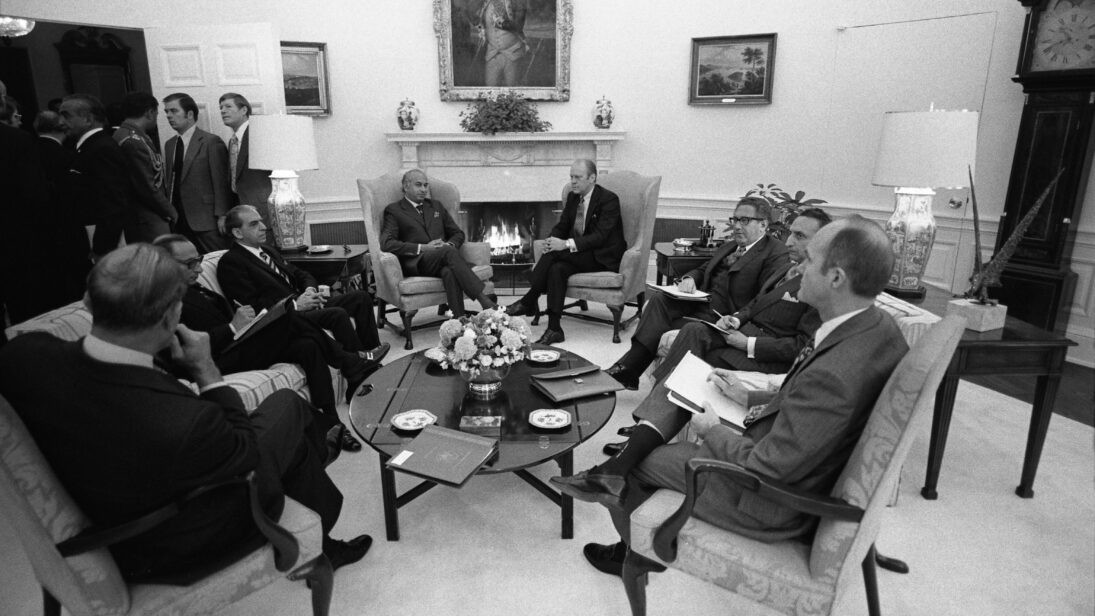
The four largest South Asian states (by economic size)—India, Pakistan, Bangladesh, and Sri Lanka—abstained from a United Nations resolution condemning Russia’s invasion of Ukraine. No other region in the world voted in the same nature and relative consistency as South Asia.
Historically, United Nations voting reflects—rather than creates—divisions in the international community. However, this month’s vote condemning Russia’s aggression and invasion of Ukraine became a point of contention between Western and South Asian states. President Biden warned that countries that “countenanced” Russia could expect to be “stained by association” on the international stage ahead of the vote.
South Asian countries have faced significant challenges in designing economic, diplomatic, and geopolitical responses to the war in Ukraine; rising inflation, repatriations, and bilateral and multilateral relationship management have consumed South Asia’s capitals. However, for most South Asians, foreign policy discussions over a war raging thousands of miles away in Ukraine amounts to a war that they are not a party to—and whose response should be predicated on lessons in history.
South Asia has experienced severe consequences of being drawn into great power competition. Two world wars were fought during the height of Britain’s colonial rule in India (1857-1947). Over 150,000 Indians died on European and East Asian battlefields fighting for the Queen’s Empire. Those who did not fight were also, tragically, not spared. In 1943, British war policies enabled the metropolis in London to stock grain from Bengal to prop up supplies to western theaters, resulting in a British-made famine that took the lives of over two million Bengalis. With 98 percent of British Indians being illiterate by the time colonial rule ended in 1947, the vast majority of Indians could not have known that they were dying as a consequence of great power conflict.
While binaries may be necessary to create foreign policy legibility for domestic audiences, it overly simplifies the complexities of how South Asian states balance competing national interests in their international relations.
International relations in the post-colonial era sought a clean break through the creation of an institutionalized rules-based order under established international laws that would shepherd state-to-state engagement. Unlike colonial rule, the principles of territorial and substantive sovereignty reigned supreme, with de-colonized and newly independent states theoretically having the most to gain as they could pursue independent domestic and foreign policies.
However, the onset of great power competition in the Cold War and in the 21st century raised significant challenges for newly independent South Asian states in their international relations. Promises of policy independence and sovereignty were often undermined by superpowers (working in tandem with South Asian military dictators and majoritarian authoritarians) who sought to use their significant coercive leverage to realign—and other times, dismiss—other state interests.
India’s and Pakistan’s contemporary alignments with the United States and China respectively have reinforced perceptions in Washington that India’s and Pakistan’s abstentions on the contemporary Ukraine war represent de-facto or faux neutrality. Equally important, however, is that Washington’s unwillingness to accept de-jure neutrality from South Asian states stems from its own historic foreign policy impulses in times of crisis.
At critical junctures, such as the advent of war, the United States has primarily approached international engagement through a “with us or against us” binary that leaves little room for countries to balance their competing interests. From framing international engagement through unconstructive binaries such as “freedom” and “communism” in the Cold War, to constructing individual and state identities through “moderates” and “terrorists” in the War on Terror—the United States will likely continue viewing 21st-century competition through global “camp politics” with China. While binaries may be necessary to create foreign policy legibility for domestic audiences, it overly simplifies the complexities of how South Asian states balance competing national interests in their international relations.
Perhaps it is in this wider context that Prime Minister Imran Khan, on March 20, surprised the world by praising India’s historic “independent foreign policy “because it “benefits their people”—a rhetoric shift not heard of in years, but one emblematic of the contemporary compulsions of global posturing amidst ongoing great power conflict. It is also perhaps in this context that India—the South Asian country most directly aligned with the United States’ strategic interests—did not completely align with United States’ diplomatic, military, and economic requests—at the time when, tellingly, the United States needed their support the most.
South Asia will seek to incorporate lessons from their colonial history, post-colonial history, and the contemporary Ukraine war as they chart their respective courses in international relations amidst an increasingly bipolar world dominated by the United States and China.
South Asian states recognize the inevitability of being drawn into a new era of great power competition. While Ukraine has (re)catalyzed US-Russia competition this year, policy communities worldwide are gearing up for more great power competition between the United States and China in this century. South Asia will seek to incorporate lessons from their colonial history, post-colonial history, and the contemporary Ukraine war as they chart their respective courses in international relations amidst an increasingly bipolar world dominated by the United States and China.
South Asian abstentions will likely continue in earnest throughout this century because South Asia cannot afford to alienate any global superpower. On the one hand, superpowers can inflict significant costs on weaker South Asian countries, largely with impunity and without fear of reprisal. On the other hand, the region’s proximate geography to China is a reality South Asian states cannot escape, and Washington and other capitals cannot overlook or dismiss.
South Asia’s success in international relations amidst great power conflict will be determined by how diplomatically they evade partaking in reductive binaries with which some great powers continue framing alignments, neutrality, and countenance in international relations. Sometimes, in specific contextual requirements such as Ukraine, it may be more productive to understand South Asian abstentions for what they are: abstentions in self-interest, necessary to balance competing national interests.
Editor’s Note: This article is part of a series of SAV Editors’ reflections on Russia’s invasion of Ukraine and its implications for South Asia. Read the full series here. This piece was modified on 4/1/2022 to note state size is based on size of state economies.
***
Click here to read this article in Urdu.
Image: National Archives Catalog


